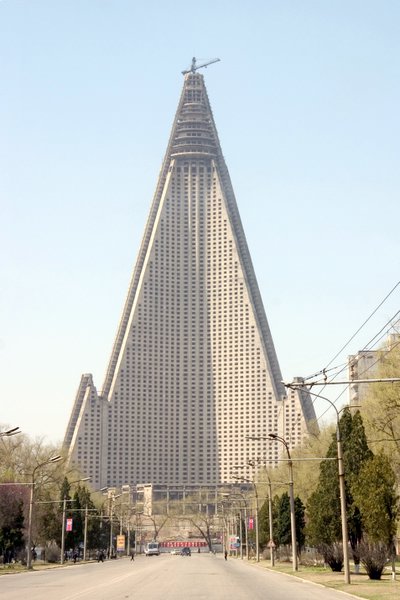You are using an out of date browser. It may not display this or other websites correctly.
You should upgrade or use an alternative browser.
You should upgrade or use an alternative browser.
The questions-not-worth-their-own-thread Question Thread!
- Thread starter Abaddon
- Start date
- Status
- Not open for further replies.
D0NIMATRIX
Full of drivel
Every few months or so, yes. They seem to be proud of it, and they always come back.
Perfection has a lot of posts, many funny, many spam.
Fifty made friends with Perfection and with a group of hangers-on they build up their reputations as famous people by being mentioned a lot. A bit self-fulfilling really.
Fifty made friends with Perfection and with a group of hangers-on they build up their reputations as famous people by being mentioned a lot. A bit self-fulfilling really.
Abaddon
Deity
It may be North Korea, or some other crackpot commie nation.. built a HUGE concrete hotel.. then didn't finish it.. anyone know what i mean?
In Pyongyang, the Ryugyong Hotel.

The Ryugyong Hotel (Korean: 류경호텔(or Ryu-Gyong Hotel or Yu-Kyung Hotel or the 105 Building) is an unfinished concrete skyscraper. It is intended for use as a hotel in Sojang-dong, in the Potong-gang District of Pyongyang, North Korea. The hotel's name comes from one of the historic names for Pyongyang: Ryugyong, or "capital of willows." Its 105 stories rise to a height of 330 m (1,083 ft), and it contains 360,000 m² (3.9 million square feet) of floor space, making it the most prominent feature of the city’s skyline and by far the largest structure in the country. Construction started in 1987 and ceased in 1992 due to financial difficulties. At one time, it would have been the world's tallest hotel.[1] Esquire Magazine dubbed it "The Worst Building in the History of Mankind" and noted that the government of North Korea has airbrushed the building out of pictures.[2]

Abaddon
Deity
Sweet, thanks. guess which thread that is going in 

dwaxe
is not a fanatic
Is it better to study during the day or during the night?
D0NIMATRIX
Full of drivel
Whenever you think most about what you're studying.
D0NIMATRIX
Full of drivel
Have any of you ever clicked my lines of gibberish, or are they just there for nothing?
They're kind of living memes. Just part of the wonderful subculture of CFC OT.Wjhats the whole "Fifty and Perfection" thing? they seem to be OT legends but I havent seen them doing anyhting spectacular... dont mean that in a bad way, just wonder if I've missed somehting

I actually kind of like how that looks....well, I would if it was finished. In an authoritarian "We don't need to follow your bourgeoisie rules of architecture" kind of way.
That building must look like a monstrosity compared to the rest of the city, though. And it somehow reminds me of a paper or Styrofoam cup, given it's thinness and it's curvature.
All depends on the person. By the time I got to university, I had been working for ten years, 5 in the army, and found it much easier to get up at 4AM to do my work than to do anything after 5PM, when all my habits told me the day was over. I graduated in four years with highest honors (summa cum laude) but then I was only studying mechanical engineering, not liberal arts, so take it for what it's worth.Is it better to study during the day or during the night?
So it really is a matter of what works for you.
Whenever you have the energy to do it and are least likely to be distracted by other things (shows, other work, etc.), if you have your choice of times.
general_kill
Deity
- Joined
- Apr 14, 2003
- Messages
- 2,870
Can someone tell me where the "Mc" and "Mac" in Irish last names come from and what they mean?
Julian Delphiki
Anton's key
Mc / Mac = "son" in Gaelic.
Irish Surname Meanings & Places of Origin
Ireland was one of the first countries to adopt hereditary surnames, many of which were devised during the reign of Brian Boru, the High King of Ireland, who fell defending Ireland from the Vikings at the Battle of Clontarf in 1014AD. Many of these names began as patronyms to define a son from his father or grandson from his grandfather. Thus, the reason for the common prefixes found on Irish surnames. Mac, sometimes written Mc, is the Gaelic word for "son" and was attached to the father's name or trade. O is a word all by itself, signifying "grandson" when attached to a grandfather's name or trade. The apostrophe that usually follows the O actually comes from a misunderstanding by English-speaking clerks in Elizabethan time, who interpreted it as a form of the word "of." Another common Irish prefix, Fritz, derives from the French word fils, also meaning "son."
Abaddon
Deity
Why does scratching an itch, simply spread the itch?
Swedishguy
Deity
Why does it always itch when someone says that?Why does scratching an itch, simply spread the itch?
Abaddon
Deity
phycosymatic or something. (scratches left ear)
Peck of Arabia
Sociable Recluse
Damnit, I'm sure this has happened before with the whole thinking about scrathing and itching etc...
My guess is that scratching is such a clumsy way of removing an irritant (especially with my brutally short nails) that it actually causes more skin irritation than it attempts to remove
Though having said that, it is a guess, and one of my guesses at that...
My guess is that scratching is such a clumsy way of removing an irritant (especially with my brutally short nails) that it actually causes more skin irritation than it attempts to remove
Though having said that, it is a guess, and one of my guesses at that...
- Status
- Not open for further replies.
Similar threads
- Replies
- 35
- Views
- 3K
- Replies
- 6
- Views
- 845

